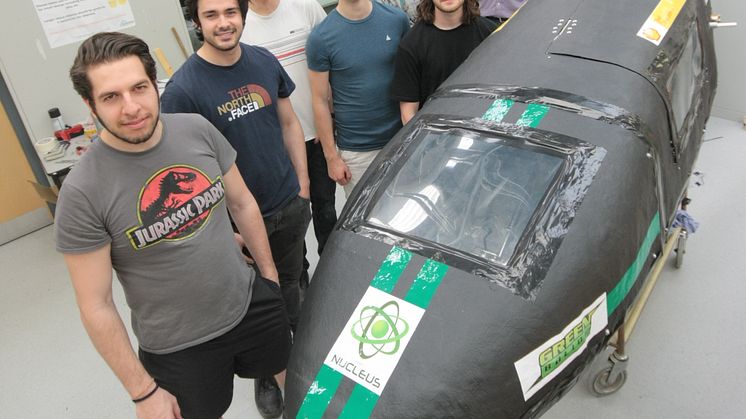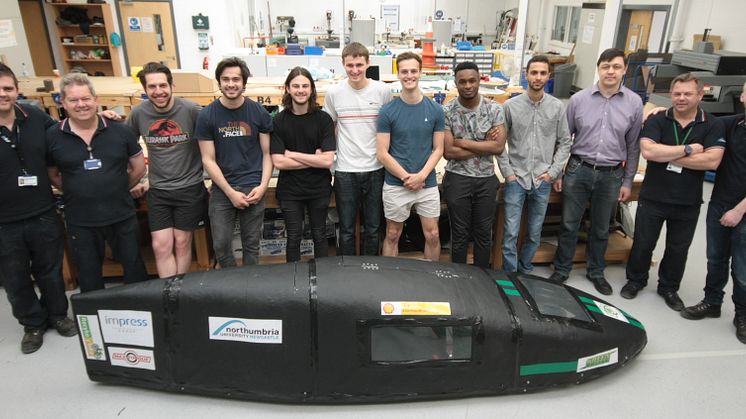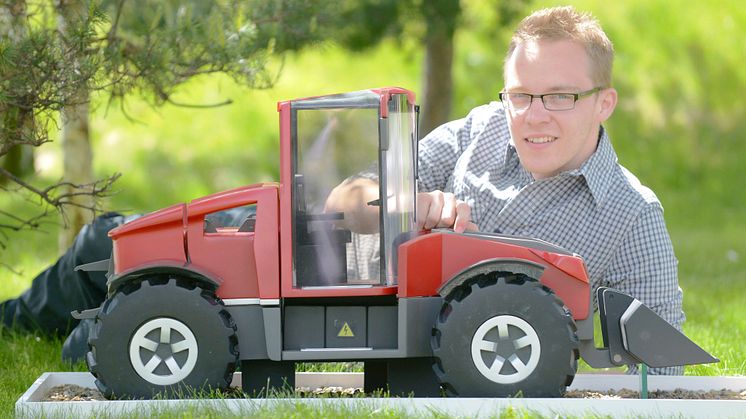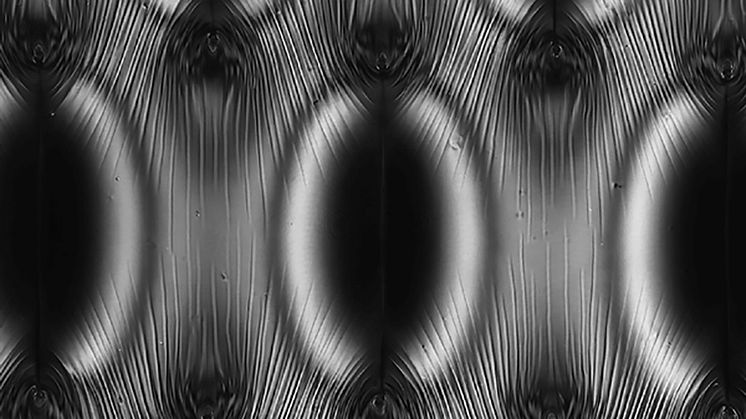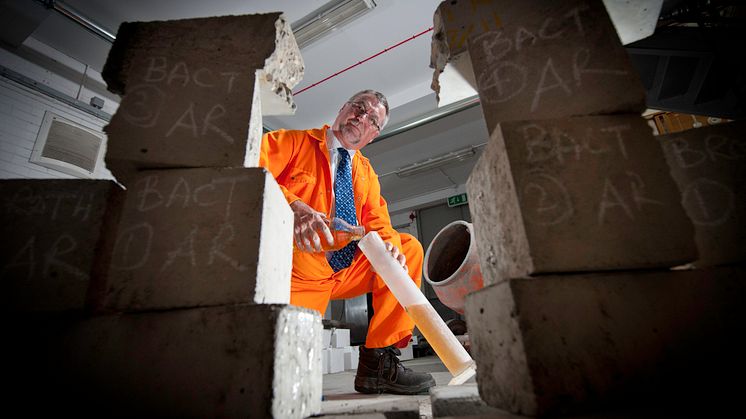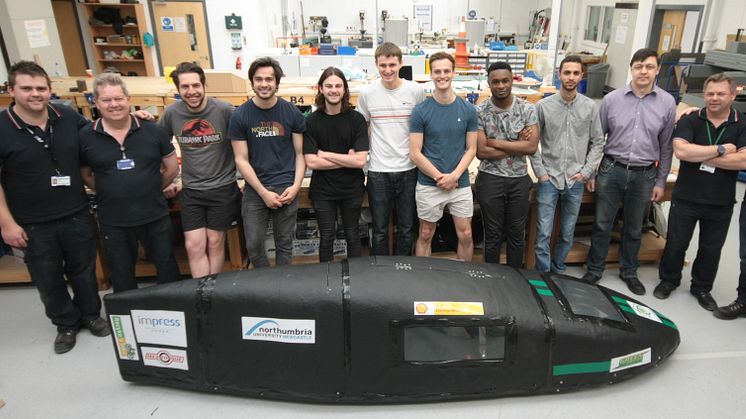
Press release -
Northumbria green engineers build car of the future
Automotive and mechanical engineering students from Northumbria University, Newcastle have produced a car powered by renewable fuel which could transform the future of sustainable transport.
The car, named the Green Bolide, runs on pure bioethanol – a fuel made renewably from agricultural crops or recycled wastes and residues which produces far fewer emissions and greenhouse gases than traditional petrol or diesel.
Once complete, the vehicle will be entered into the international Shell Eco-Marathon, a global competition which challenges students to build a vehicle that can travel the furthest distance using the least amount of energy. Teams of students from all over the world compete to design the most energy efficient vehicle, using a variety of sources including diesel, gasoline, bioethanol, CNG, hydrogen, GTL and electric battery.
The team of 11 students, known as NUCLEUS (Northumbria University CLean Energy Ultimate Solution), has been supervised by Dr Ulugbek Azimov, programme leader for Automotive Engineering at Northumbria. The NUCLEUS team comprises of students Richard Eke, Joe Clegg, George Holland, Ikechukwu Asobi, Simon Flaherty, Yasamin Walker, Andreas Gaitanis, Timothy Cameron, Damon Beukes, Jamie Forster and Matt Bingham. They have been supported by Dr Azimov, PhD student Sayed Hesham Ebrahim and Mechanical and Construction Engineering department technicians Philip Donnelly, Simon Neville, David Sibbald, Martin Purvis and Sam Hutchinson.
Dr Azimov said: “The government has set sustainability targets which require transport fuel suppliers to ensure a proportion of the fuel they supply comes from renewable sources. Of the biofuels which were produced last year in the UK, bioethanol was the most successful in terms of meeting the targets and so there is a lot of interest in the production of this fuel and vehicles powered by it.
“As part of our Automotive Engineering course at Northumbria we research how cars can be made cleaner and greener and so the Shell Eco-Marathon design challenge seemed the perfect way to incorporate this further into our programme.
“The project has allowed students to apply what they are learning in the classroom to a real life situation and the experience they have gained has been invaluable – we’re now looking forward to seeing how the car performs at the Shell Eco-Marathon next year.”
Team NUCLEUS has had to overcome a number of challenges during the project. As well as focusing on the aerodynamics of the car, the students have also had to investigate the effect of pure bioethanol fuel on the vehicle’s performance and its emission levels. Bioethanol has a much lower energy density than gasoline, meaning roughly four times as much is required to travel the same distance.
The team have adapted a small gasoline engine using a cutting edge electronic fuel injection, developed the engine start-stop concept and reduced the car’s weight to just 60kg by using lighter materials and removing unnecessary components – all with the aim of increasing fuel efficiency.
The team has had support from a number of organisations, including the Shell Eco-Marathon organisers who awarded NUCLEUS a £5,000 grant to support the team’s participation in the event. Impress Group has also supported the team, in particular the company’s engineering director Stephen Patrick and operations manager Michael Errington, who helped with the manufacture of vehicle’s chassis. Vehicle components were also provided by MaxTorque and Recyke-y-Bike.
The team have documented their progress throughout the project via a range of media resources, including a website, Vlog, Facebook page and Instagram account.
Team NUCLEUS (Northumbria University CLean Energy Ultimate Solution) testing their bioethanol-fuelled car from Northumbria University on Vimeo.
Northumbria’s Automotive Engineering BEng (Hons) and MEng course provides a foundational grounding in engineering and aspects of vehicle design. Modules include ‘Powertrain and Chassis Systems’, ‘Drive Cycles and Vehicle Performance Modelling’, ‘Automotive Design and Analysis’, ‘Vehicle Dynamics’ and others. Students are encouraged to spend a full year in the automotive industry between their second and final years.
For more information, please visit https://www.northumbria.ac.uk/study-at-northumbria/courses/automotive-engineering-beng-ft-uusame1/ or find out more about our upcoming Open Days here.
Topics
Northumbria is a research-rich, business-focused, professional university with a global reputation for academic excellence. To find out more about our courses go to www.northumbria.ac.uk
If you have a media enquiry please contact our Media and Communications team at media.communications@northumbria.ac.uk or call 0191 227 4571.







